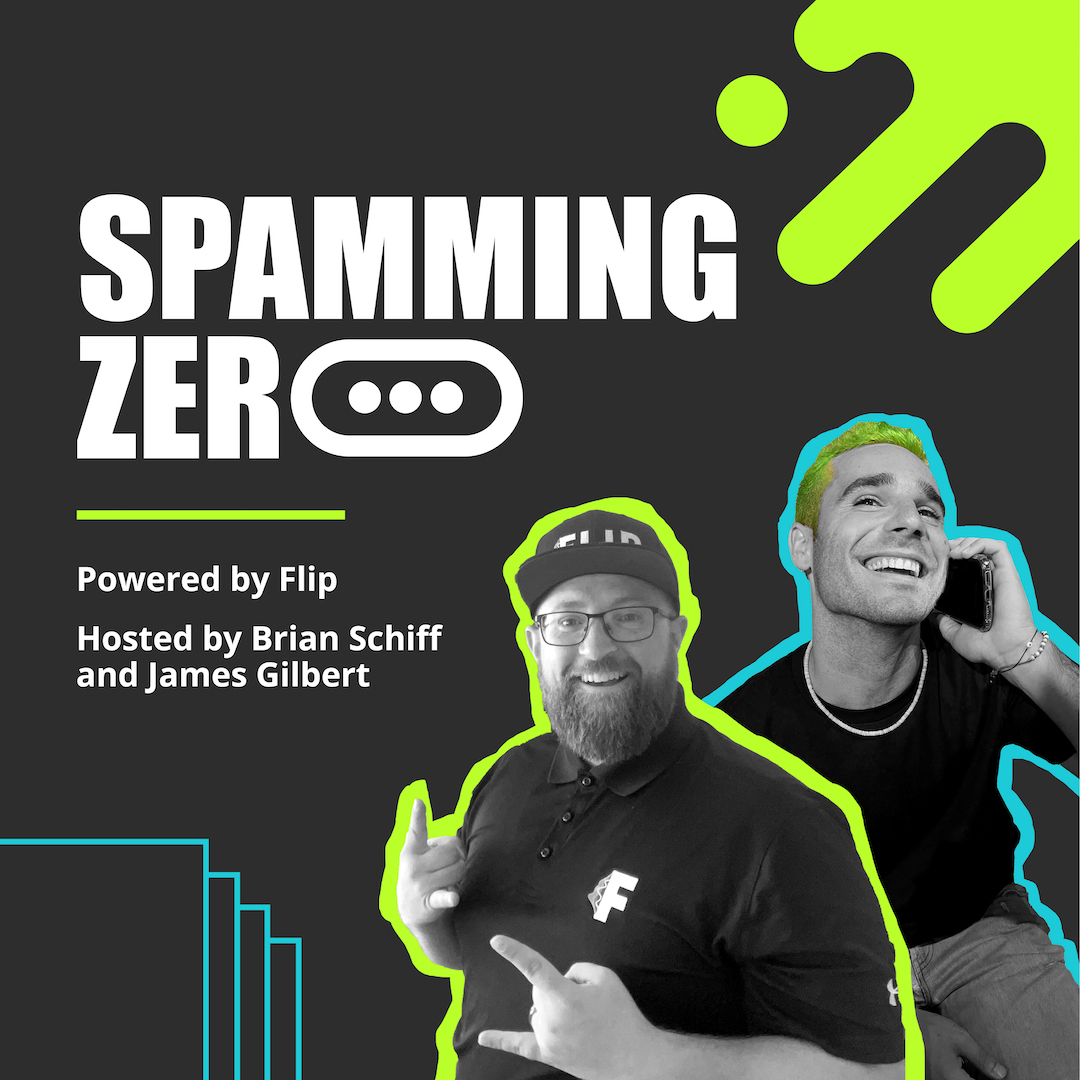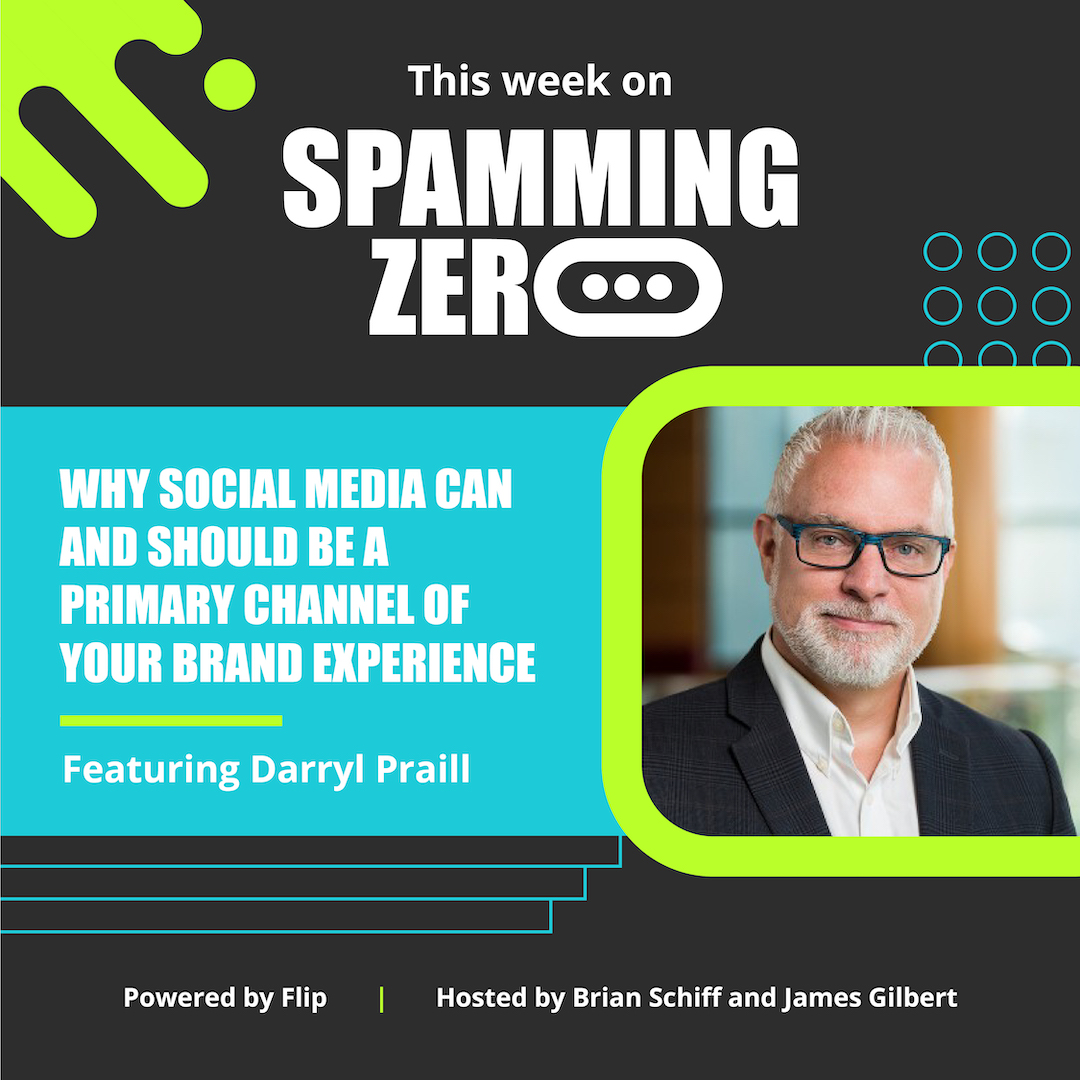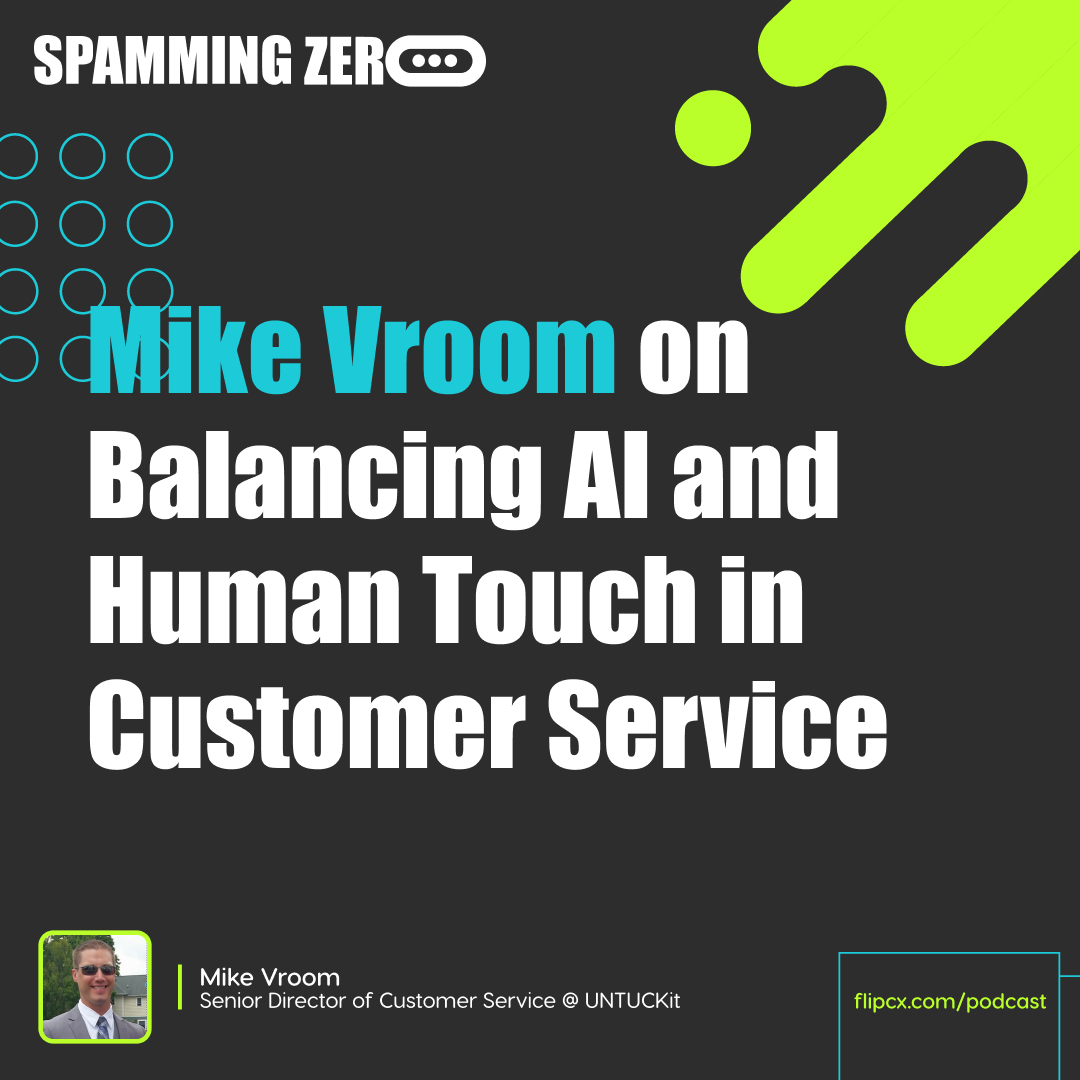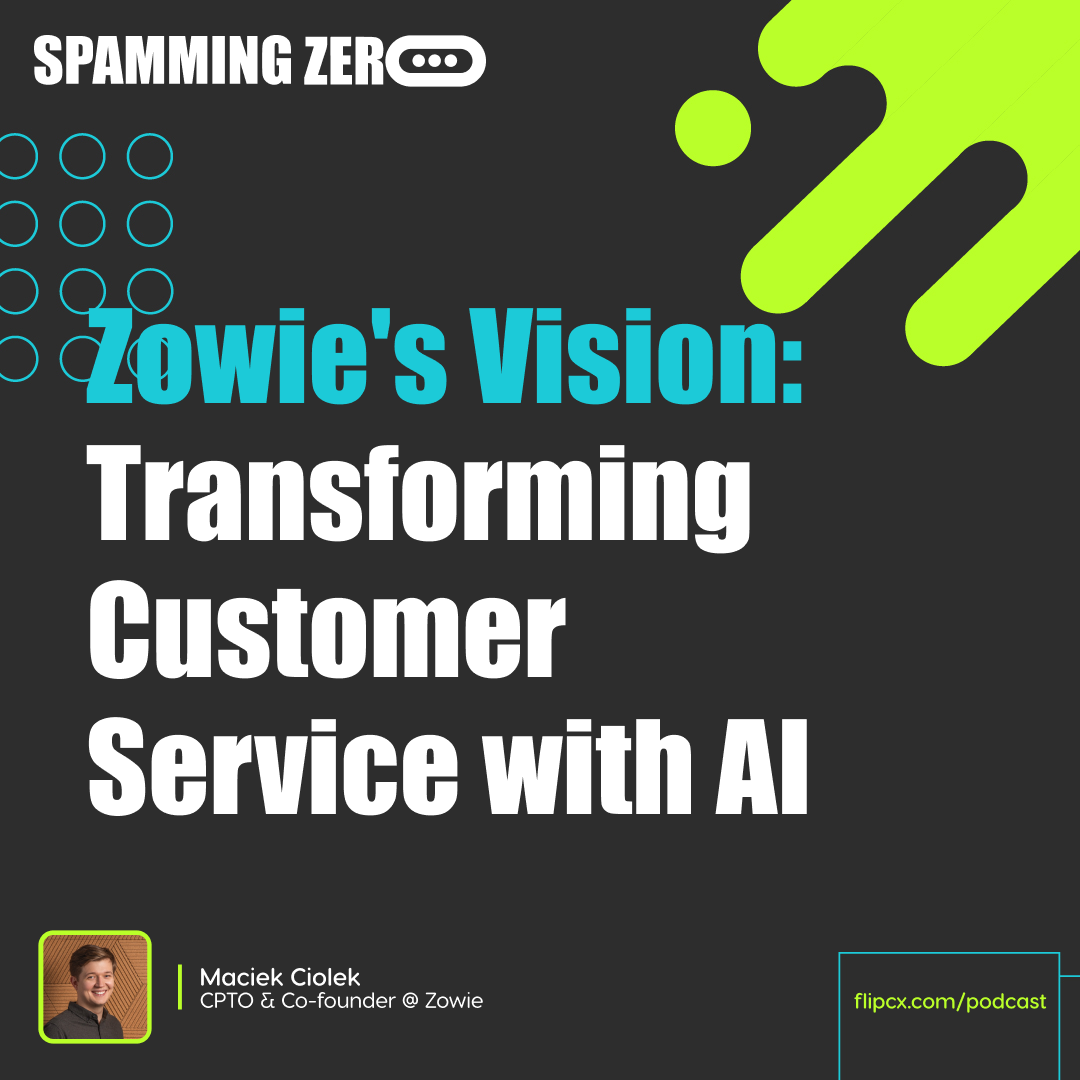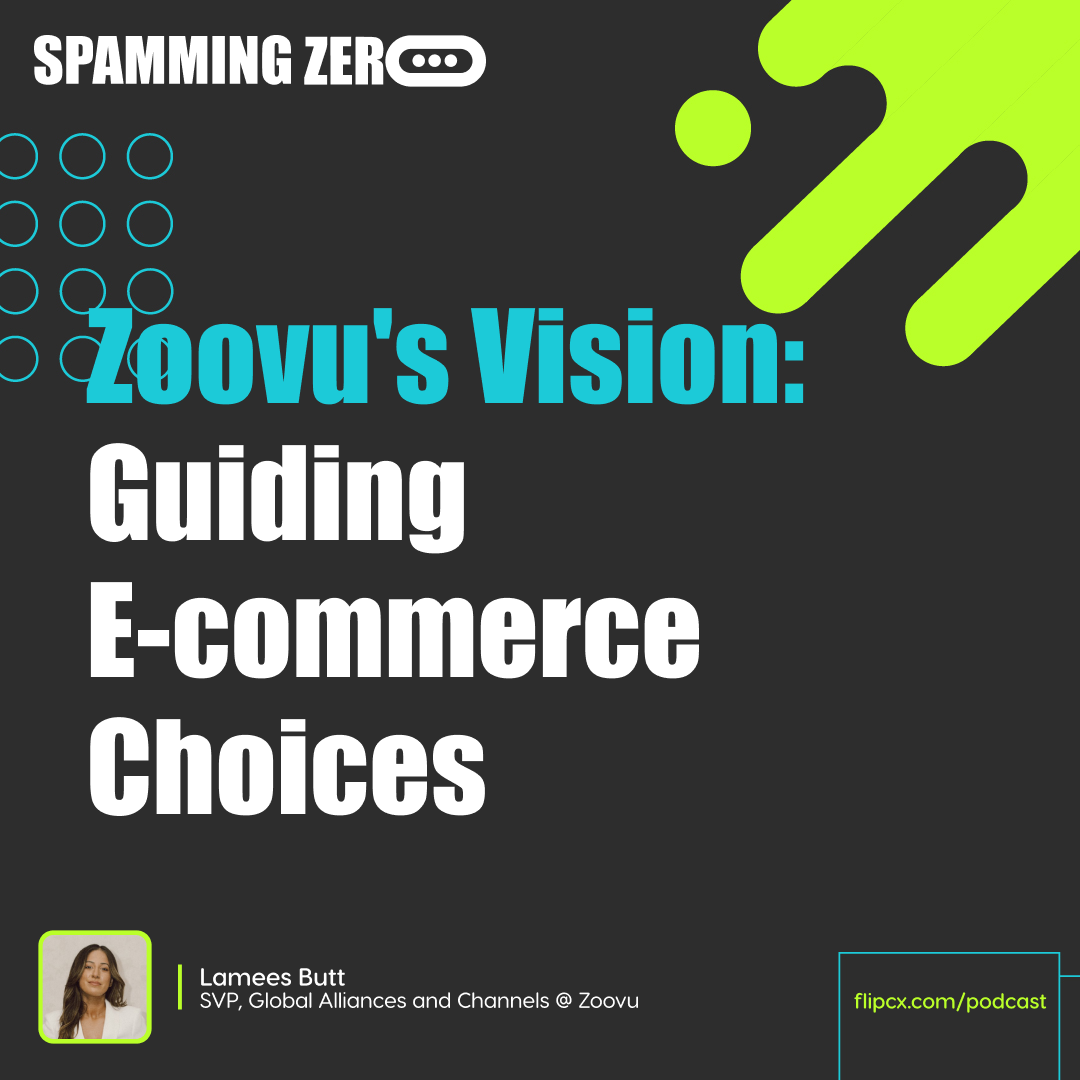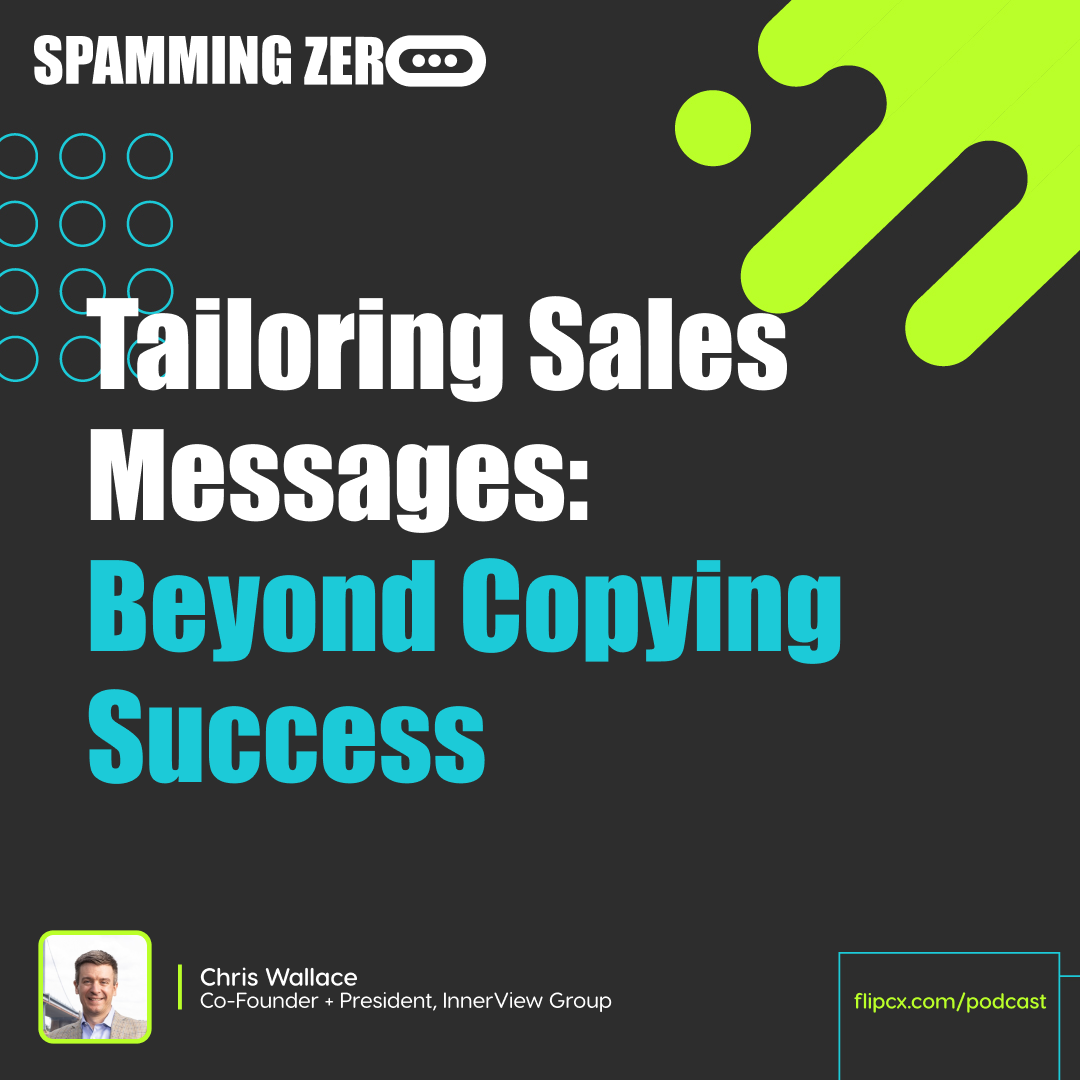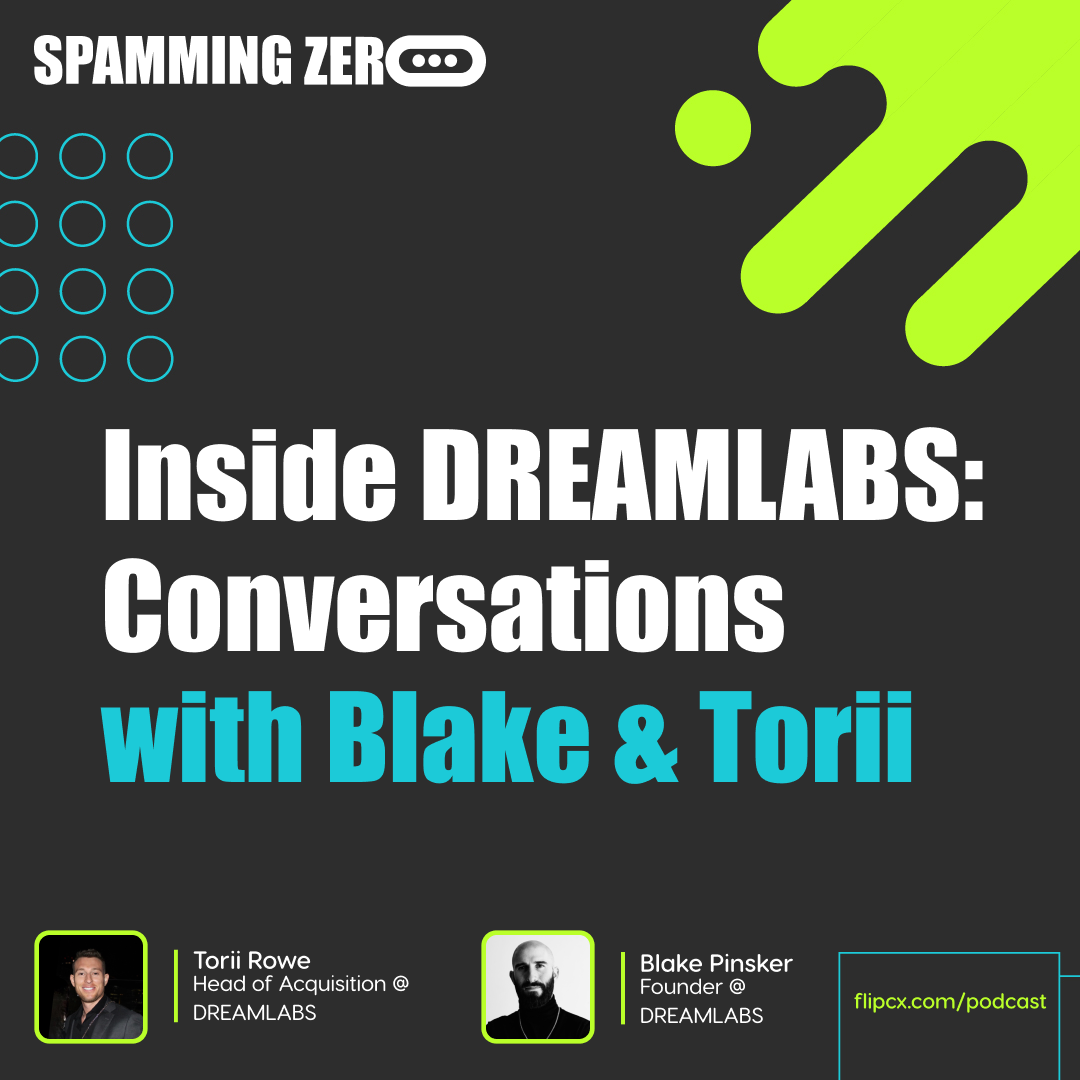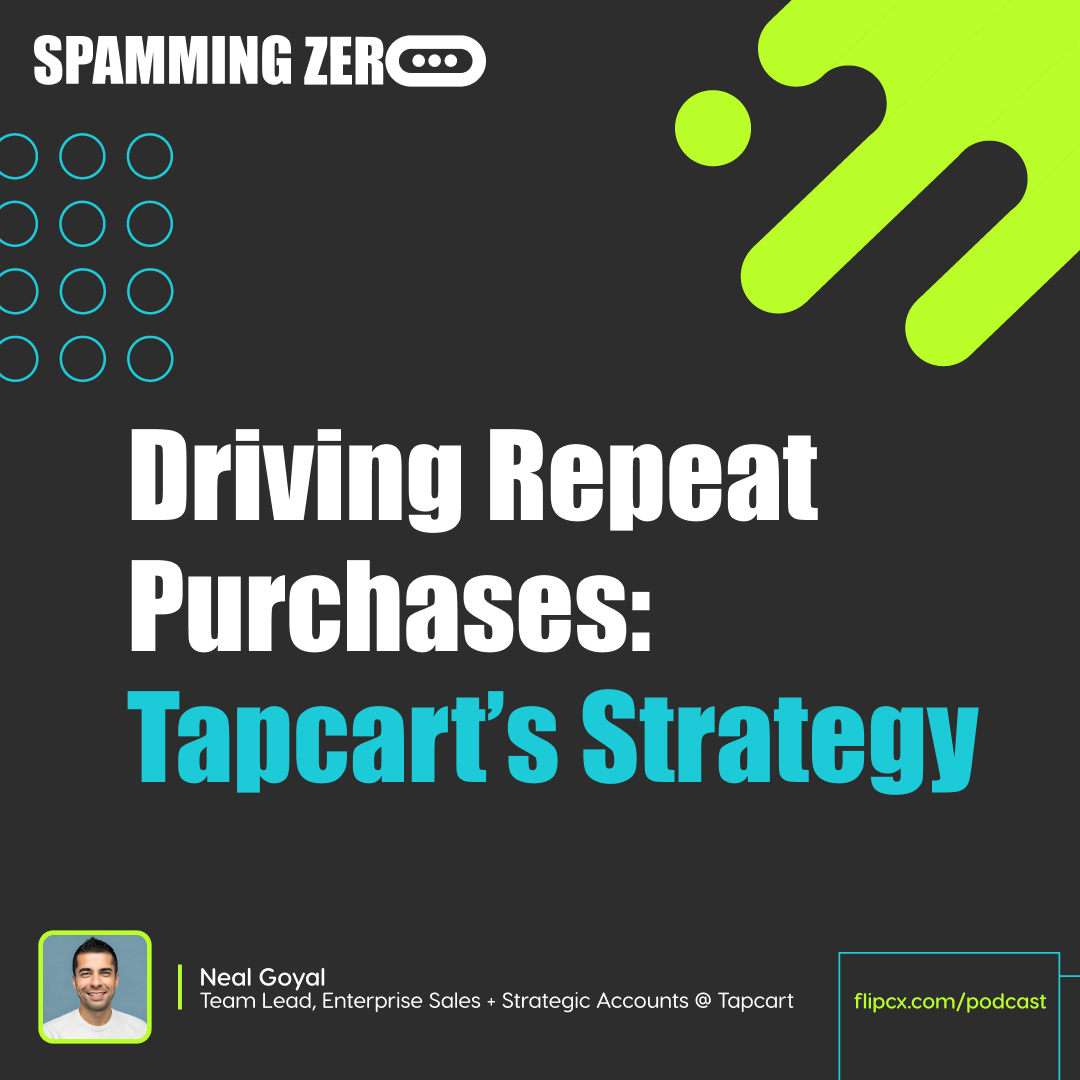Episode 14: Why Social Media Can And Should Be A Primary Channel Of Your Brand Experience
- 0.5
- 1
- 1.25
- 1.5
- 1.75
- 2
James: I'm James.
Brian: And I'm Brian.
James: And this is Spamming Zero. Welcome to the show, Darryl. I think you might have been in my mind, at least from my perspective, I think you were one of the first viral podcasters in the B2B space. I specifically remember following you and seeing you on LinkedIn more than almost anyone.
Darryl Praill: Those was early days of LinkedIn video really helped. Video is not nearly as much of a driver in the algorithm now, but in the early days, it was. So what are we talking about today, guys?
James: We're going to be talking about social media. I mean, you're a big deal when it comes to this stuff, especially now working at Agorapulse. So I want to dive into that, but before we do, what's a guilty pleasure you have right now, Darryl?
Darryl Praill: So for all those who are listening, don't be shocked. I do get some of the questions in advance, because they're hard freaking questions, and I do not have the answers for all of them yet. But on this one, I got to think," What's a guilty pressure?" And for me, this is going to sound totally lame, but a guilty pleasure for me, is when I can get up and sneak out, I might do this once every couple weeks, and go to breakfast at a diner. It's got to be a diner, a greasy spoon diner, by myself and just have bacon and eggs. And me on my phone, reading the latest news, doesn't matter what it is, politics, entertainment, who's doing what to whom in Hollywood, I don't care. And it's just me, just having coffee and lots of bacon and eggs, and just having that moment of solitude, that is epic. That is medicine, chicken soup for my soul, boys and girls, that's what that is.
James: Darryl, to come to our topic, why do you think that there is such polarizing views on social media strategies, especially with I would say, at the enterprise level? There's so many enterprise red tape, if I may say so myself, why do you think that is?
Darryl Praill: And just so we're clear on that, because there's lots of ways I can go with this. You're saying in your opinion, a lot of red tape, can't take any risk, you're not allowed to say anything that's not approved by three levels of management and a lawyer? Or the point of view that we're not giving you any budget for social media, because there's no ROI on that and it's just likes and shares and that's just bullshit? Show me the deal, show me the money, show me where it matters, those kind of scenarios? Or shall I go on with other versions?
James: You should go down both.
Darryl Praill: I should go down both.
James: Because I know you have opinions about both.
Darryl Praill: All right. So let's have that conversation because I've lived this. Again, when I started doing this at my last gig at VanillaSoft where I was the Chief Revenue Officer, I was into the job for three months and I went to the CEO and I said," This is what we're going to do." I said," We have to go and we got to out- content them on social and video. And I'm going to take that room there that's a storage room and I'm going to turn it into his studio." And I said," But here's the thing, boss man." And he is like," What Darryl?" I said," We're not going to be doing it under the corporate social handles. We're going to do it under my social handles." And he just looked at me and he stopped. And he staring and he's like," So wait a minute, I'm already paying you a king's ransom on your salary, and now I'm going to spend more money and time to let you promote your own brand as opposed to me? I don't know how I feel about that." And I said," Well, I hear you, but you got to understand." I said," Know people don't buy from brands per se. People buy from people. That's number one. And you have to trust me that I have head on my shoulders and I'm going to say the right things. And I'm going to make sure that they know I'm with VanillaSoft and it's going to work. This is the modern way. This is why you hired me." Now, in that case, I had a leader who trusted me, he didn't understand. He trusted me. And a year later we were at an event where the booth was packed. And I had a lot of people come to check me out and he turned to me and he said," Darryl, you're a rockstar." And I thought he was full of shit because that's the kind of guy he was. Or inaudible at me, mercilessly picked on me. That's why I love the man. And I said," What do you mean?" And he's like," No, seriously." He goes," I don't know how you did it, but these people have all heard of us through your social activity and that's why they're at this booth now." And he goes," I watched you do it, but I wouldn't have believed it. I couldn't tell anybody else what you did to do it, but you did it." Wow. So that was validation for me. But to answer your question, why is it's because it's twofold. There is ingrained self bias. I'll go with that. I'll track on that one. And then there's the second that marketers are stupid. I want to be pretty clear in that, marketers are stupid. Okay? And I'll explain that. The self bias is that you've got all these people, maybe a CFO, as an example, they control the budget, or a COO or a CEO. They've not used social. They don't understand it. They can barely use their phone. They can't program a VCR. Kids look up what a VCR is. It's in Wikipedia. And so they just don't get it because that's not what they would do themselves. And they think it's a vanity play for you. And they think they're totally exposing themselves to legal risk because they didn't have the foresight to put any processes or policies in place themselves. So therefore their default reaction is just, no, they're just scared shitless and it's just who they are. And so sometimes, what you have to do in that one, boys and girl, is you seek forgiveness later. I have done that too many times. You just do it and then you apologize later. Then you say," But look..." The second reason though, is that marketers are stupid. All right. So what do I mean by that? I mean, I see this over and over and over again. So you are a marketer. You understand the whole point is about hype and awareness and thought leadership. You understand the buying cycle. And then I say," Great, put yourself out there."" Whoa, not me. I can't do that. I'm not good on camera. I don't know anybody. Nobody knows who I am. If I were to ask someone to join me on the show, they would just ignore me. And if I did do it, I would need a script. I would need a script every bloody second because I have fear and I need to have this safety net. So you know what, I'm just not going to do it. Instead what I'm going to do is I'm going to like and I'm going to share. That's what I'm going to do." Which does jack shit on its own. See, that's a technical term, marketing term, jack shit. So marketers are stupid. Now, marketers understand that it's about establishing relationship. They understand it's about repetition, being your brand, being in their face over and over and over again. They understand it's a long game that like SEO could take six to 12 months before you start seeing results. So hence social is the same way. And instead, they get caught up in the vanity metrics and they say," I did this post and it got no likes. I suck. I'm embarrassed. I'm never doing that again." As opposed to saying," Well, let me study this. Why did it get no likes?" Or as opposed to understanding that the behavior of their buyer, 90% of them is to lurk like you, for example, you knew of me, but I could can't point back to any kind of comment in the early days you left on my content, but you knew of me because you saw the content, right? Marketers, they understand it, and they defend it when it comes to PR or when it comes to SEO. They talk about brand and billboards. But when it comes to social, their head just turns off and they don't understand that it's exact same paradigm, and they let their fear dictate their choices as opposed to being a marketer and embracing it. So marketers are stupid.
Brian: One of my favorite questions there and ways of almost cutting through it is ask a marketer, ask anybody, what are the last two, three, five new things that you have recently become aware of that you're excited about and ask them how they heard about those things? And ask them, how did they hear about them and why are those the things that were memorable? I was going through my email this morning and I was like," Holy, I have 44, 000 unread" work emails". I don't think that's the way where you're coming in and people are kind of ears perked to what you're doing and have the inherent starting out interested versus starting out uninterested. So much of that is about the way in which you become exposed to it.
James: So it's interesting to frame. You and I, we're going through this exercise right now, Darryl, where we realize as an early stage startup, that it is absolutely crucial for us to be constantly on social media. It's the one area that we can compete with some of the bigger brands that are out there. You can. You can organically compete on social with them. You can be more consistent because then you can get your POV out there. And so we have been talking about as a leadership team, how all of us, not just some of us who have been doing it, but how all of us play a role in that. Brian, being our CEO and founder, out there all the time, posting that one or two times a week and talking about specific things that he needs market input from. Things that I'm posting, things that our CRO needs to post and our CTO needs to post from the product perspective. To me, it's a crucial GTM motion, from my perspective. It's the wheels of what needs to happen with your messaging needs to go out into social and you can't test it any other way. Especially 10 years ago or less, most people would go to get educated on the website. They don't anymore. They educate themselves in social media. And we see this all the time. People are talking about this. And so what advice do you give people that one either don't have a dedicated team for social media? What do you give that advice? Or number two, let's say they're an early stage startup. How do you get their founding team and their executives engaged in that type of activity?
Darryl Praill: So I want to answer your question, but I want to respond at Brian's comment first because I thought it was profound. Brian said," Where do people learn?" All right. And the answer is simple. They do one of three things. They call a friend. It's kind of like the game show, I want to call a friend," Hey, I got this problem. What do you recommend?"" Well, I don't know, but I saw so and so and they're using this or they did a video or they shared a post or what have you, and they had good things. Check them out." Number one, they call a friend. Number two, they go to a community like peak community or other communities, inaudible or others, Pavilion, and they say," I've got this problem. What do we do?" And all these complete strangers whom we don't know, chime in with their opinion because we trust them because we have the same craft. We're all marketers, we're all sales reps or whatever it might be. But we trust the herd. All right. Or number three, they go to Google. They go to Google and they Google it. And what do you find? You find results often that lead you to YouTube or Twitter or even a blog post. All right. But the point is, all of that is social. YouTube is a feed that I could have done a video. I could done a live stream to LinkedIn and a YouTube at the same time. Boom. Now it's on YouTube. So same thing. The community trusts people because of that shared content. My CEO, you know what my CEO's been doing to me lately? He's been sending me snippets of podcasts from Chris Walker of Refine Labs and saying," Listen to what he says here. What do you think of that?" That's how people learn. He's taking Chris' content. That is, by the way, that's dark social. You can't attribute that. Chris Walker will never know that my CEO took a copy of his video content, maybe the link, and sent it to me and asked me to review it. He can't attribute that hence dark social. So to bring that back to your question, Mr. Gilbert, what do I tell people? I tell them that. I make it real for them. I say," How do you learn? How do you learn? You yourself, when you were researching this business and we were trying to find investors and you were trying to figure out what the right product market fit, how do you learn?" And they will say exactly," Well, I just I called a friend," or" I went to my little, my little cadre of buddies on a community," or," I did a Google search." Or," A trusted advisor sent me this template or this video or this how- to guide that was posted online somewhere." That's how they do it. So I say to them," Okay, so why do you think your buyer's any different than you are?" And all of a sudden they have that epiphany moment. So I'm like," Okay. So if they buy the way you buy, if they research the way you research, you got to be there." And then if that's not enough, I'll say," You don't have to believe me, guys. I say," Go to any metric." I say," Here's a Gartner report." I did this recently. I said," Guess what the number one spend is." And they said,"I don't know, trade shows." I said," No, way down there."" Pay per click, paid media." Yes. Number one spend by a marketer is pay per click, paid media. I said," Guess what number two is."" I don't know, trade shows?" No. Still way down there. And they're like," What?" I said," Social media, social media is the second biggest spend by marketers." Now, here's where marketers are stupid again. I said-
Brian: We love marketers.
Darryl Praill: Yes. I can say this as a marketer. Guess what marketers don't measure. Social media. I can tell you exactly the ROI I get on my pay per click. I can tell you the ROI I get on my trade shows, even though it's way down there, as far as one of my spends. But they don't know the ROI they get on social media. In fact, we did this wonderful little study recently, and this will prove my point. We studied, well, wait, I'm trying to do the math here. We said there was roughly 10 million posts we studied on social media recently. And of that, I want to say, I don't know, two point whatever million, less than 3 million had links. So a link could be back to a piece of content, a video, a download, a call to action, an ebook, whatever a landing page. So less than 3 million had links. Of that, only 1. 8% of those 10 million posts actually used UTM codes in the links. So in other words, 1. 8% of 10 million posts could be trapped. Said another way, 98. 2% of all the social media posts could not be tracked. How is this possible? Marketers invented UTM codes. We understand we need to attribute it because we need to go back and ask for more money the next year, because we want to show what's working and what's not. We want to increase budget here and reduce there, but we don't do it. And why? Because marketers are stupid. But if they were to track it, then those CEOs and those founders and all of those CFOs and CEOs who don't understand that, they would see the numbers and they would go," Oh, I don't understand how it works," like my old CEO said," But I understand the result. And if it's working, here's more money."
James: I think the problem, I mean, there's probably not a single problem here, but I do think one of the fundamental things is the scalability of creating UTMs.
Darryl Praill: It is.
James: And I think that the more that these social platforms can create them organically as you do a post naturally. I know if you schedule stuff through like a HubSpot, it will create UTMs organically within the link itself so that it can be tracked. So I think the more that tools and technology can do those things and make the marketer's lives a lot easier, then they'll be less handoffs. Because you know this Darryl, you've had big teams and if there's somebody writing social content and they don't know how to do a UTM, then they got to likely tap into somebody who does. Maybe that might be your ops person or it might be your SEO person. It might be somebody who's doing some of the growth stuff. So then it requires more handoff, which requires more lead time. And I think that's where the fundamental problem is likely with a lot of marketers on the execution side. Could be wrong there, but that's just theory.
Darryl Praill: No, no. You're right. I'll tell you why. Funny story. Now and all just transparency here, folks. I did not set James up to say what he said, and this matters because what I'm about to say. When I was being recruited for the Agorapulse job, I was really intrigued, because well intrigued to me... So for those who don't know, for context, Agorapulse is a social media management tool. It would compete with the Sprout Social or a Hootsuite. Boom. Now, you know the pitch. Why does that matter? When they were recruiting me, I had a conversation with the CEO far down the process and I say," Here's my reticence to join your firm. My reticence to join your firms that you're a bit of a commodity." I said," Everybody's got a social media tool so why would I join you?" And he's like," Well, how can I overcome that objection?" I said," If you show me something cool that you've done that's innovative on the product that nobody else has, then I'll join." And he says," Okay, I got something to show you." I said," Great." So what he showed me at the time was beta. It's released now. We're the first tool out there that physically will do it, completely automate, we had this whole social media ROI module that we just launched and it automates everything. And I'm like," Oh, you've got my..." As a CMO, my lights are going off. I'm like," I can market that." Because exactly, you just said it. Remember the theme here, marketers are stupid. So if you make it easy for them, they'll use it. So that's what Agorapulse do, but nobody else is doing so that's my one and only plug for Agorapulse. Check it out at agorapulse. com. What's been amazing has been the reaction. I want to share the reaction. As we've gone to market with the message, a couple things have really come out at us. So for this to work, you need to really be on Google Analytics 4. 0. So, if you're not on that, that's a problem. And a lot of marketers are going," Ooh, Google Analytics, Google Studio? That's foreign to me. That's scary." And they're run away from it's. Hey marketers, you can't do that. You got to embrace that. Suck it up. There's there's YouTube videos. Guess what? There's social content out there that will teach you how to do it. That's the first part. Second part is this. There's been this debate as we go back to a lot of marketers, especially agencies where like," Hey, imagine if you could show the ROI of all the programs you're running for your clients on social media. Think of what that would mean for you. You could ask for a bigger retainer because you can prove your worth. You can actually reduce your churn. You could actually be more competitive and get new business because the competitors don't do that. You should want this." And we've had this 50/50 split, which is half of the agencies are like," Oh my God. Yeah, sign me up, brother. I am into that." And the other half are like," There's no way in hell I want to even introduce this concept of ROI because then they're going to hold me accountable for it. We're fine, thanks, with engagement and vanity metrics of like, shares, and comments and that's all we care about." \. So there are a lot of things at play here on the whole social media side. A big part of it being accountability. A lot of marketers don't want to be accountable to show an ROI on social media, and that part blew me away, because I view that as a competitive advantage. But what are your thoughts when I share that with you?
James: Brian and I have talked a lot about this at RedRoute. We look at social media and the things that we need to do as a GTM part of our strategy. And I genuinely believe that every person in the organization is, this is going to sound disingenuine, but it's not meant in that way, is a channel and an opportunity to share. Like the personalities and the individuality that exists with every employee that is in your organization is an opportunity for them to show their personality, and in some cases, tie that back to brand. Just like you've done in your career, Darryl. Your organizations, for lack of a better way of putting it, have really had to piggy back off of your following that you build personally to build their brand up.
Darryl Praill: Yeah.
James: And I think that there's something to be said about, here we go, I'm throwing out the favorite quote again, but the brand is defined by the product of a thousand interactions. One of my favorite quotes.
Darryl Praill: That's a great quote.
James: And if that is at all true, even if it's 20% true, then that means social media is crucial to everything that you do because social media is where you can get the majority of your interactions in a much shorter time period with little to low effort and very little spend. And you can scale that across many people, not just one person or not just one channel, but then everybody becomes an interaction of the employee experience with your brand too, which yields a better a customer experience. So that's the way I think about it. That quote, like I think about social media so much, and I know we talked about dark social and I do think that there is absolute truth to that. As a matter of fact, we were just talking as a marketing team just this week about dark social and how we turn things that are traditionally long form content, like a blog, into more of an actual strategy where it can be activated in social media where it may not be able to be measured. But nonetheless, it's providing the brand awareness and it's becoming an interaction of the overall brand essence that exists in the market.
Darryl Praill: So it's so funny you say that. There's two things I want to share that support what you were saying. One, when I was being recruited for the Agorapulse job, the CEO kind of said to me," Darryl, there's three things we need you to do. One, the marketing team, because we're a global company with offices around a globe, we have some silos. Kind of like USA versus Europe as an example. So fix that." Okay. Straightforward stuff." Two, we need to hit the revenue goals." Yeah. Okay, I get it. You want me to generate some MQLs and hopefully the sales guys can close the deals. I get it. No problem." Three, we want thought leadership and awareness. We are the best product there, but not everybody knows it." And so that led to a conversation where I said," I can do all three." I said,"But you need to understand one thing. The thought leadership and awareness thing," back to dark social," I'm not going to be able to attribute it. There's going to be secondary signs of traction where the inbound leads come in without a trackable lead source, for example, where we get more impressions or we get more website track, or we get more followers." I said," But those are indirect attributions, I cannot measure it. And it's going to take six to 12 months truly before you really start to see an effect." So I said,"And I'm going to ask for budget up front. So if you're okay, knowing that on that thought leadership, that awareness, whatever you want to call that, brand equity buildup you want me to do, that it can't be measured and it's going to cost you some money and it's going to cost time and effort, then I'm in." And he's like," I'm there, but I need you to teach the other executives on the team that." So after a couple months, I went back and I said," Okay, here's the plan." And the plan was very straightforward. So yeah, I already reorged the team so option number one of silos is done. Number two, you want MQLS, which leads to MRR. Straightforward, here's where all the leads come here from or do more of those tactics and channels. That's rinse and repeat stuff, no problem. Number three, noise. Here's what we're going to do. And it's like I said," Here's a monthly campaign calendar." I said," And on a monthly basis, every single country in the world, so not just one company, every single where we have offices and conduct business, we'll do two webinars. We'll do six live streams. We'll do two virtual demos. We'll do at least four podcast episodes a month, if not more." All of this is about dark social." And we're targeting multiple personas. So in our case, we'll target what we call the technician, which is the social media manager, and we'll target the executive or the CMO or an agency owner as an example. So the content will differ." And I say," And because of that, we're going to be doing a shitload of partnering. So I have to put a lot of money in my partner investments so that it's just not them coming on our shows, but then they invite us to be on their shows and that's where the exponential factor kicks in." So I said," Which means I need to go and hire probably four video people because when you start looking at, I add a video person to do all of my German language content and a video person to do all my French language content, a video person to do a whole bunch of English language content, another one for the Spanish language content, and we're going to go nuts." And you see their eyes get this big. And I'm like," And you can't track any of it, other than these indirect numbers. I said," But that's where the business is going to come from, because going back full circle, that's how inaudible." So I'm seeing a shift happen. And it doesn't hurt with people like Chris Walker and others out there pitching that message. It's totally self- serving for him. I respect him. I've been his show. But it is also self- serving because that's his core business. But that is how people buy. That's how people buy. And so it changes the investment. I was looking at like next week alone, I was looking, I think I have myself personally, 10 or 11 productions that I'm on. That's not including my day job of being a CMO and making sure that other campaigns are happening and I'm dealing with people and I'm doing whatever, that's the modern marketer.
James: Pretty much, we all can't be as popular as Darryl, but inaudible...
Darryl Praill: Well, it all changed when I grew the beard thanks to COVID and all of a sudden I realized I could hide my ugly behind this wonderful mane. So it's all good.
James: I mean, it's one of your few respectable qualities.
Darryl Praill: Very few. Brian, how do you work with this guy? I don't know, I got to a lot of respect for you, brother.
James: I've always admired your beard, coming from another man.
Darryl Praill: Beard envy. That's true. Ladies and gentlemen, men have beard envy. I just want you to know that. It's totally true.
James: That is. All right. So we're coming up on time, but I want to ask you one last question. I would love for you to share an experience that you've had that's kind of left vivid memories for you and how social media played a role in it.
Darryl Praill: Okay. So this one I struggled with. I struggled with this one because I'm pretty open with my kids, but here we go. Life's going to get real folks. Okay. Not everything's a positive story. So way back in 2006, I had been hired along with a new CEO to flip a company. We had a three year game plan. We flipped it in nine months. Life was grand. And I was kicking ass and there you go. And a month later, myself and the rest of the management team were let go by the acquiring company. Didn't see that one coming. Probably should have, it was a big cliche, but we didn't. For the first time in my life, I didn't have a job. And I was a single income family and we were at a certain threshold with young kids, of expenses, houses, and everything else. And it didn't take long, because I didn't have a job to go to, before we had gone through our savings and life was tough. And I remember, one day going the mailbox and there was some gift cards for groceries, from a complete random stranger. And we cried and that took us several years to dig out of and that left some serious scars. That also made sure that I would never put myself in that situation again. All right, so that's the reality. How did social media play a role in this? Twofold. It was 2006. Social media was pretty damn... My space was still a thing, I think, I don't know. But what I did to get the job that I finally got was I said,"Okay, Praill," finally, I'm like,"Okay, the traditional way isn't working of putting out resumes, let's be a marketer." And what I did was I created a viral campaign that you would do today of videos. And I use videos and coffee cups and three dimensional mailers. Think about what we do today with vendors like Sendosa or Alice, where we're saying," Hey, if you have this meeting, I'm going to give you this." While I was doing this with coffee cups and with videos and I was measuring... I made up website and I made landing pages. And I could track when I would send these direct mail pieces out. And I could see when they would hit my dedicated landing pages and would pick up the phone. And I could see they'd watched the videos that I'd done. So I knew that my DMS had been delivered. They'd been on the website. They watched the video. Boom, pick up the phone, and of those 11 companies I targeted, I had seven interviews. I got four job offers. Life was great. That was a precursor to social media today. The second thing though, was this. I knew the reason that happened was because I had a shitty network. I'm an introvert. I don't like networking. It's not my happy place to go. Social media comes along and I'm like," I can network here." All right. Because I can still hide behind my phone or hide behind my screen and I can go send a message and say,'Hey James Gilbert, will you be my friend?" And I can Google cool videos because I'm actually not looking at you. I'm looking at a lens. And so social media became my way to network and to build up my community so that if that ever happened to me again, I had a resource to fall back on. Secondarily, social media built up my personal brand, and you talked a bit about that, James. So that again, if something ever happened to me, people would be coming and knocking. I would simply say," Hey, looking for my next opportunity." And people would be knocking on the door, and I will tell you this, that happened. When I was taking this job, I was recruited. I wasn't looking. They went through all my social media content. And the reason they wanted me was because of my social media content and my brand and my ability to show that I understood the medium. At the same time, when I was announcing that I changed jobs, I had multiple CEOs come to me and say," Oh, you just changed jobs. Is it too early? We didn't know you were looking. Can we talk?" That's what social media is about. It's about being credible, about being real. It's about building a network. It's building a trusted community. It's about sharing your knowledge and expecting nothing in return. It's about connecting with people where they're at. It's about not being an influencer hocking clothes and having courses because that's how you make your money. It's about being up here and a colleague. If you do that on social media, the success will just come to you. The business will come to you. The inbound leads will come to you. So, that's what happened to me, and that was how social media played a role in the above experience.
James: Love it. I couldn't think of a better person to have on this show for this particular topic. You've built a really strong personal brand, but you've also had businesses reach out to you to piggyback off of your own personal brands so that they could build their brand. You work for a social media platform company that helps this. I mean, there is probably no one better that could speak about this particular topic. And like it or not, you have to adopt a strategy with your social media. It is a pivotal part of the buying experience and the customer experience that all brands need to focus on.
Darryl Praill: Amen, brother, I couldn't say it any better. You nailed it. What we'll say is this, if you don't do it, full circle, you're stupid. There we go.
Brian: And that's a wrap.
James: Oh, all right. Well thank you for joining the show today. Darryl. If you've had a chance to take a look at the podcast today, please give us a rating. And if you have topics that you want to hear on the podcast, about Spamming Zero, or your thoughts around why you call customer support and push zero to get to a human, we want to hear about it. So talk to Brian or I, or anyone within the organization, and let us know what you want to hear about and we'd love to have you on the show or talk about that topic. If you have not yet subscribed, again subscribe to Spamming Zero is the podcast and it's on all your listening platforms. Thanks again for joining us today and we'll see you next week.
DESCRIPTION
Marketers are stupid. Ok, ok – don’t get your knickers in a knot… After all, a marketer is currently writing this. But let’s be clear: If you’re not leveraging social media as a primary channel of your brand experience—like SO many marketers—the best word to describe that is stupid.
That strong opinion comes from one of the best marketers in the biz. Darryl Praill is CMO at Agorapulse, a Top 50 Social Seller, Top 50 Sales Keynote Speaker, Award-winning Content Creator, 2020 Top 10 SaaS Branding Expert, and was voted one of the Top 3 Marketers on LinkedIn…
In other words, he knows what the heck he’s talking about. And he sits down with RedRoute’s Brian Schiff and James Gilbert to offer top tips—this week, on our Spamming Zero Podcast.
What’s Covered?
- Why there are such polarizing views on social media strategies
- Darryl’s top tips for those just getting started
- Getting executive buy-in for your social strategy
- Consistency (and cross-org participation) = Crucial
- Some of Darryl’s inspiring personal stories
- And more
Ready for more fantastic Spamming Zero conversations ahead? Listen, rate, and subscribe on Casted, Apple Podcast, or Google podcasts.
Today's Host
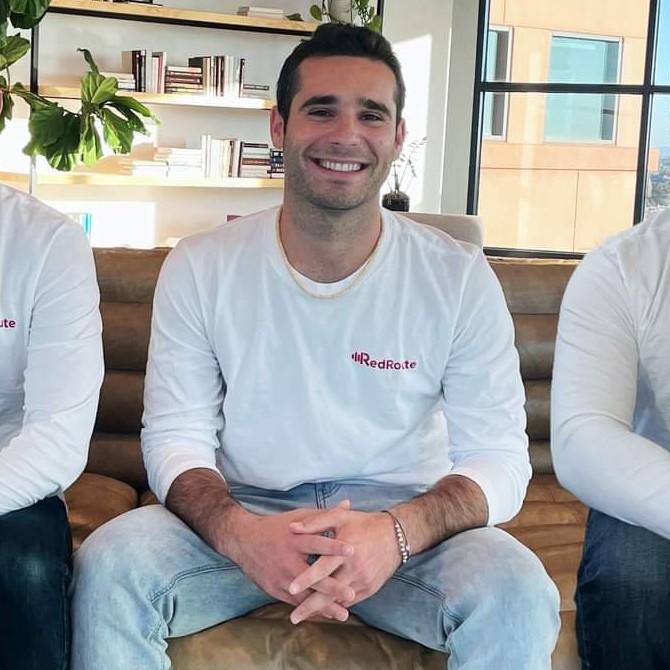
Brian Schiff
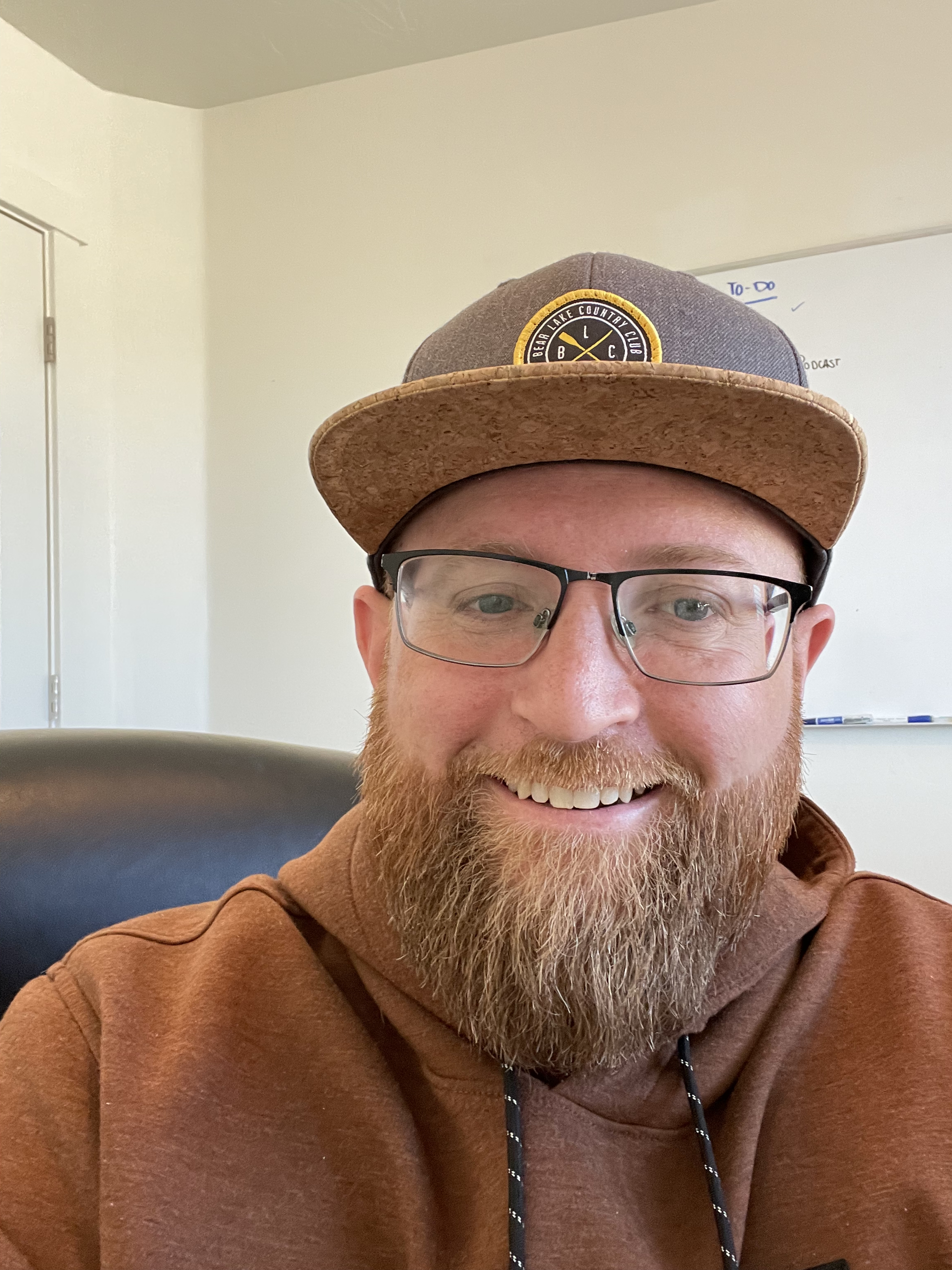
James Gilbert
Today's Guests

